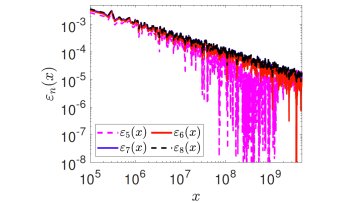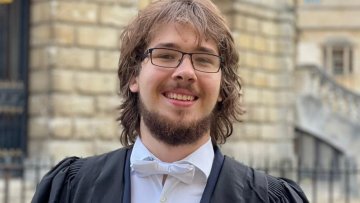As part of our partnership with the Faculty of Music in Oxford, we are delighted to welcome the Castalian String Quartet to the Andrew Wiles Building. The Quartet holds the Hans Keller String Quartet Residency at the Faculty of Music for the academic years 2021-24.
Mozart - String Quartet No. 15 in D minor, K. 421
Fanny Mendelssohn - String Quartet in E flat major
Interval
Felix Mendelssohn – String Quartet No. 6 in F minor, Op. 80
The Castalian String Quartet presents a programme of three string quartets from Viennese composers. Starting with one of Mozart's quartet tributes to Haydn, his String Quartet No. 15 in D minor; this is followed by one of the earliest known string quartets written by a woman composer, Fanny Mendelssohn's String Quartet in E flat major; and ending with Felix Mendelssohn’s final String Quartet, his last major work, powerful and tempestuous.
The concert will be preceded by a talk by Dr Sebastian Wedler at 6.30pm. The concert will start at 7.30pm.
Mathematical Institute, Woodstock Road, Oxford OX2 6GG.
Tickets £15, free entry for all under 21s. Book tickets here.
[[{"fid":"64700","view_mode":"media_397x223","fields":{"class":"media-element file-small-image-100px-h","data-delta":"1","format":"media_397x223","field_file_image_alt_text[und][0][value]":false,"field_file_image_title_text[und][0][value]":false},"type":"media","field_deltas":{"1":{"class":"media-element file-small-image-100px-h","data-delta":"1","format":"media_397x223","field_file_image_alt_text[und][0][value]":false,"field_file_image_title_text[und][0][value]":false}},"attributes":{"class":"media-element file-media-397x223","data-delta":"1"}}]]




